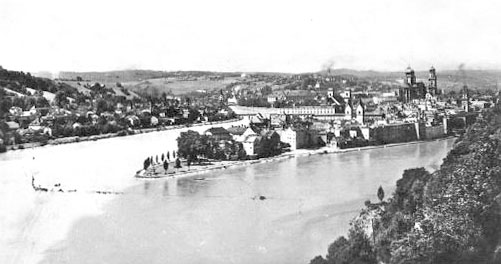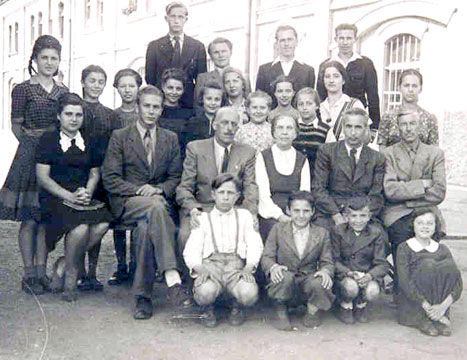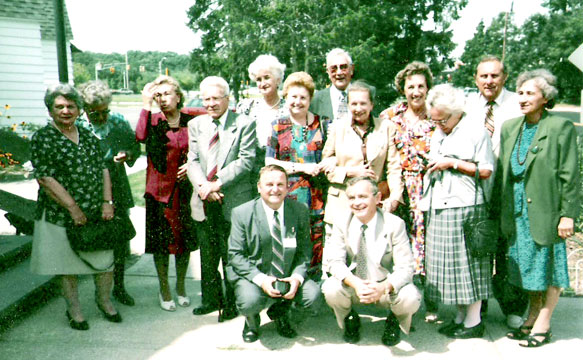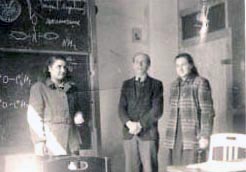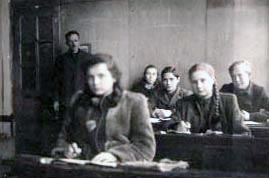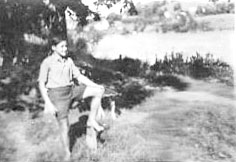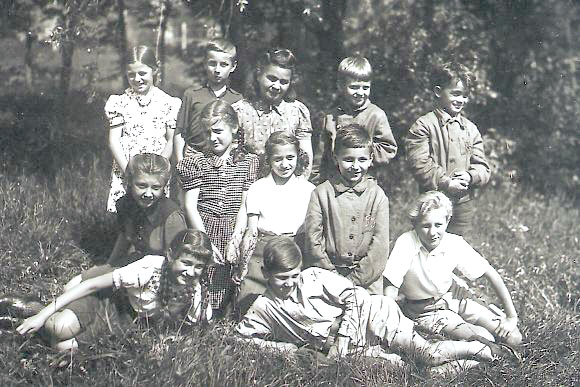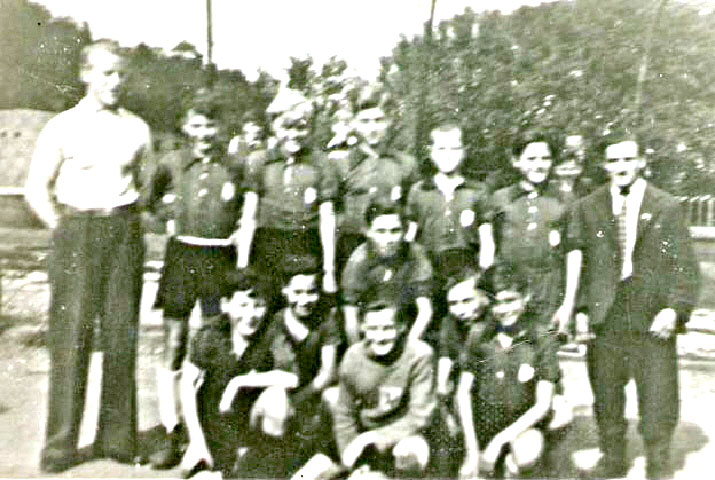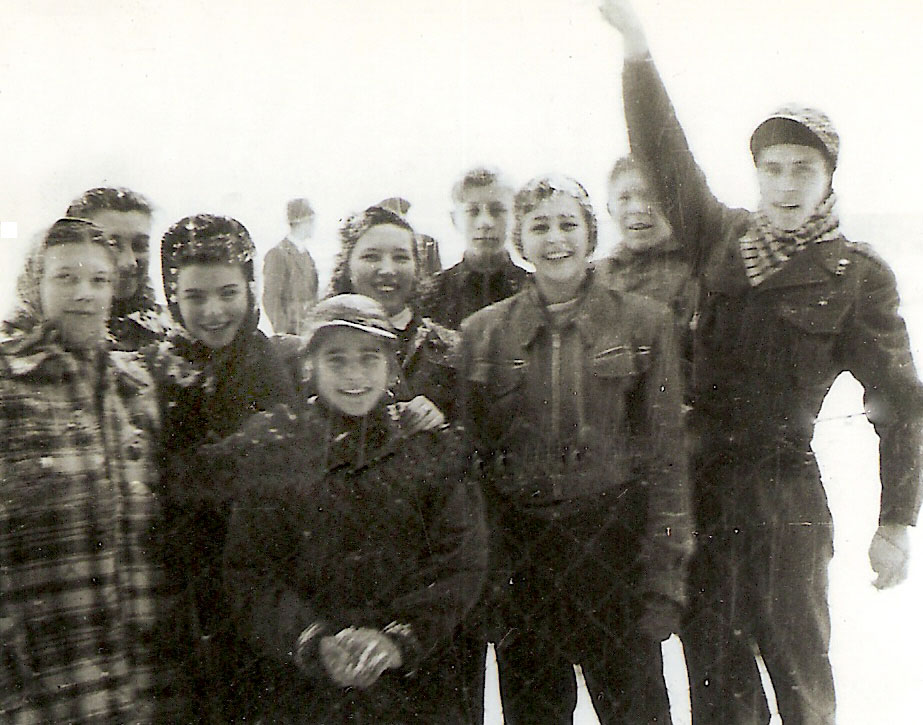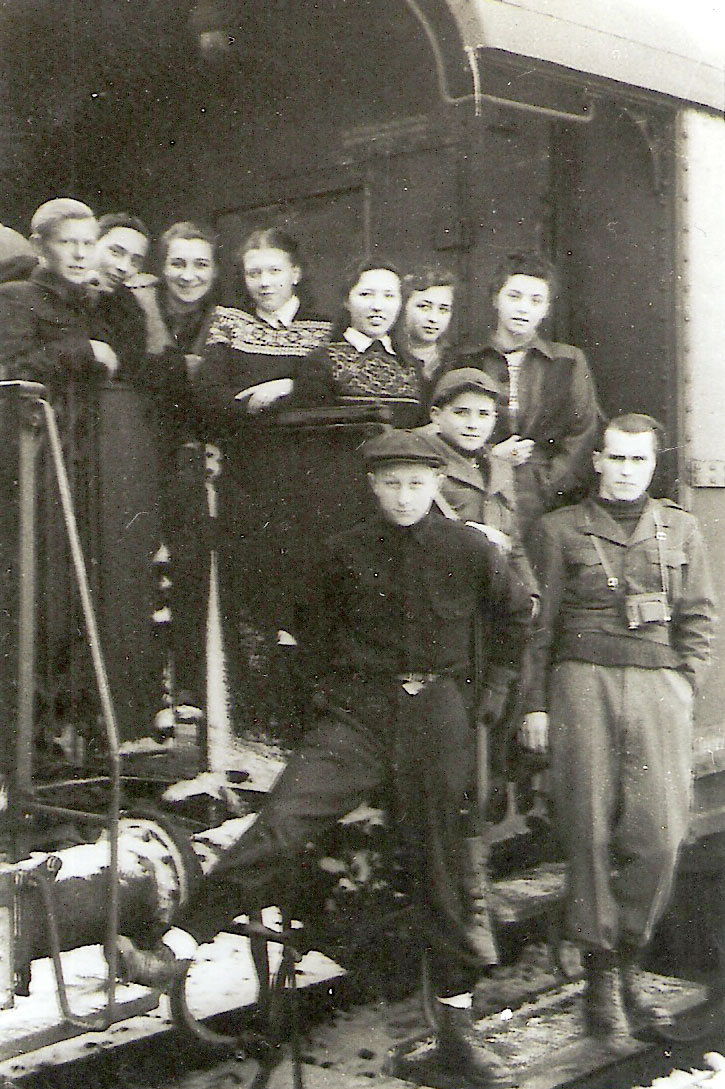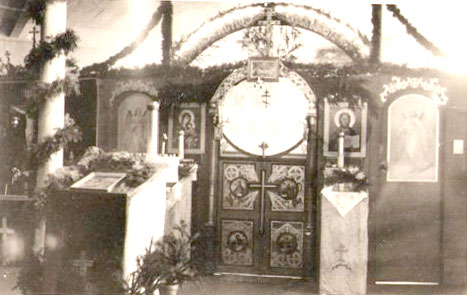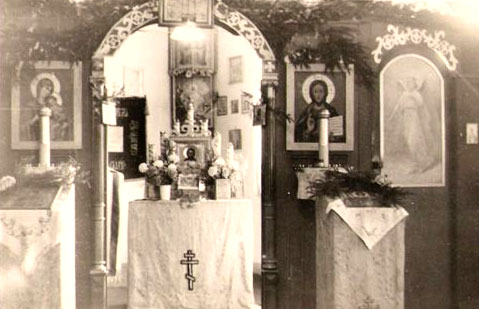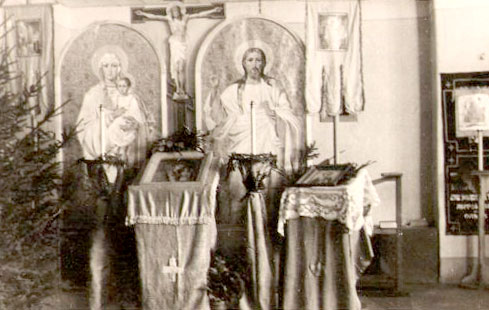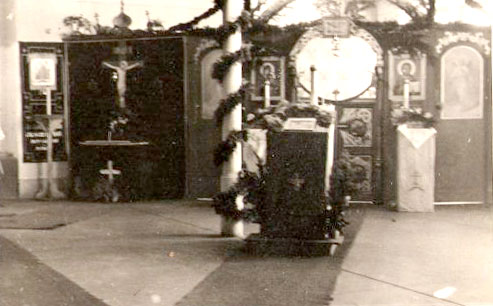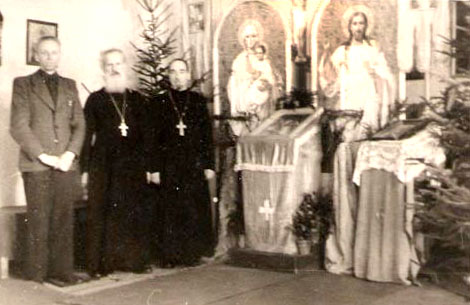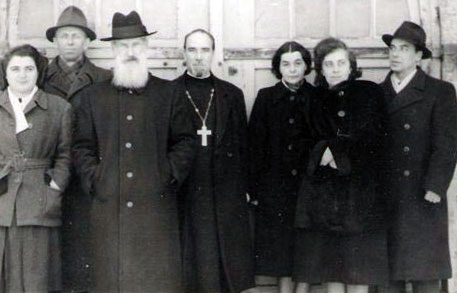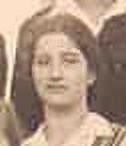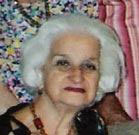City
archives: Stadtarchiv: http://www.stadtarchiv-passau.de/
address: Stadtarchiv Passau,
Rathausplatz 2,
94032 Passau,
Postfach 2447,
94014 Passau (Postanschrift),
Tel: 0851/396255,
Fax: 0851/396249
9/9/04 Hi Olga,
We are looking for information on my father Henry ( Henryk) Bieda and his family.
He was in the Eggenfelden camp
in Passau as a member of the Special Laison Police in 1945. We have his ID card.
We are trying desperately to find any of his family. We think he might have been
liberated from Warsaw. Also is there a way of finding out where he was liberated
from in Warsaw? The only other detail is that he had the "KL" tattooed on his
left arm -- not a number like most. Also, he was born in Kamensk in Ukraine
and moved at an early age to Warsaw. In Polish, Bieda (Big Troubles)
means poverty . Talk to you soon and again thank you, Regards, Ken
and Ann Rothstein
See Eggenfelden under Germany
E page:
Reply from Gary Novak:
Just
got rather a lengthy e-mail from my buddy Herman, also from Passau.
Neither one of us remembers an Eggenfelden
DP Camp in Passau.There is a town Eggenfelden, but far away from
Passau.
Passau has 3 "Stadts": (from south to north) Innstadt (south of Inn river), Hauptstadt (between rive Inn and river Danube) and Ilzstadt (north of Ilz river). The Austrian boarder, half circles the Innstadt. Border starts one mile east of Inn river bridge (just 1/2 mile east of Innstadt camp) and on the west side: across the Inn from Mayerhof Kaserne camp. I remember before we moved into Innstadt camp, I use to ride with my German neighbor, who had horses, to pick up refugees at the Austrian border station, across from Mayerhofand take them to the "Hauptbanhof". The reason train stopped there, was because, if you remember, the railroad bridge was blown and was lying in the river.
There were two DP Camps - Inntadt and Mayerhof Kaserne, which was opened in the early fall of 1945 by UNRO (United Nations Refugee Organization). The railroad bridge across the River Inn was blown up and many DPs were transported to Hauptbanhof (main station) by horses.
Among the DPs was a Russian monk from Czechoslovakia, who asked UNRO if he could organize a church for his followers and was given the facilities in Innstadt. Eventually a Russian Orthodox church was organized in Mayerhof Kaserne
Right after the war's end you all lived in the Nicholaus schule. I and my mother we lived in a sidlung, in an unfinished house, just couple 100 miters east of Innstadt camp.
In the early fall of 1945 "UNRO" (United, Nation, Refuge, Organization) opened Mayerhof as a DP camp. Among the people who lived in Czechoslovakia, was a monk (Archimandrite Michael). He was the one, that wanted to organize an Obzchina for his followers and UNRO gave him the facilities in Innstadt.
Half way between the bridge and the Innstadt's camp, was a military mess hall, in one of the taverns. I used to hang around there at lunch time, so I can pick up some cigarette butts for my mother and for myself. I use to get a rare piece of white bread or a very rare bar of chocolate. At that time I have seen trucks running up an down the street moving people and their belongings to the new camp. I have seen guys like: Kot Ivanov, Aleksej Torin, Serse Platonov, Koka and others, whom I didn't know at that time, riding in those trucks. I guess they were loading and unloading trucks.
In spring of 1946, my mother and I moved in to that camp, we were given a very hard time by the "Old Immigrants". There was couple other families, that came from Soviet Union and we were called Sovetskie Svolohi. We did not live in a room, but in the attic of an old storage barn. Like you mentioned: we had blankets hanging all over. At the end of fall, we were moved to Mayerhof. We did not walk to school in Innstadt, but we were transported there by truck. They divided the schools between the two camps: elementary classes and first class through third of high school, were in Innstadt and fourth class through eight were in Mayerhof. So they first transported us to Innstadt and the old folks back to Mayerhof.
About the Passau Kickers: In 1946 there were 2 teams: Passau Kickers and FC Passau. We went once, from Innstadt to a Kicker's game (don't remember with whom they played), but the game was in Ilzstadt next to the swimming pool, the one we used to go to. I remember the Kicker's uniform was the same like the one you used to have, when you played for the first team. FC Passau always playedat the Mayerhof field. In 1946 both teams were in the Oberliga, but in 1947, Kickers were abolished.
Than,
if you remember, in 1948 FC Passau draped into the Landes
Liga.
In 1996, the last time I was in Passau, they still use the Mayerhof field.
The only difference, now they have a fence around the field and they
charge admissions.
Hermann
The
following photos (click to enlarge) were shared by Gary
Novak.
Postcard
from 1940s. Passau, where river Inn runs into Danube. A
smaller river Ilz (not shown) also runs into the Danube a little
to the right. For miles the waters do not mix, but run
together like a three-color ribbon: white Inn, green Danube and black
Ilz.
Quite a sight! The DP camp was located about one mile up stream on the German side of Inn.
Names
left to right:
Front row: ?,
Igor Novickij, Boris Konorezov,Olga Voznesenskaya
Second row:Irina Novickaya, teacher Samushenok,
school director NikolaiAlexandrovich, ?, Boris Bogdanovich, ?
Third row:Natalia
Gavrina, Olga Kamishanskaya, Ludmila Labadovskaya,Alla Arnautova,
Irina Pashe-Ozerskya, Kira Kaldomasova, Lida Stepanova, ?, Natalia Kudrina,
Tatiana Bogdanovich & Maria
Turkul
Top row:Kiril
Vinter, Evgenii Fedorenko, Vladimir Plushchev and GeorgiiNelipa
Reunion
in Lakewood, NJ.
Names
left to right:
Front
row:Igor Platpnov, Victor
Kudrin
Standing: Lala
Mamai, Irina Novickaya, Irina Mocharskaya, Georgii
Simonov, Tatiana Bogdanovich, Lydia Stepanova,
teacher Samushenok, Kira Kaldomasova, Emma Pope,
Dusia Pleyer, Herman Krueger and Tamara Mocharskaya
Students in our algebra class: Olga Voznesenskaya (my cousin), Irina Mocharskaya, Me, Lydia Stepanova, "Kieshka" (don't know his real name)
There were Russians, Ukrainians, Latvians, Lithuanians and Estonians living in different buildings in the camp.The Russians were mainly from Czechoslovakia, Poland, Yugoslavia, Latvia and Soviet Union.
We (nine of us) lived in a large room #34 along with five or six other families. Makeshift walls, made of blankets and sheets, separated some families. Every day we were fed dinner and supper, consisting mainly of oatmeal and twice a week were given packages for breakfast. Every two weeks or so, a truck would come by with packages of sweets for us kids and some cigarettes and toiletries for the grownups. Besides that, every three months they would bring a bunch of used clothing and shoes. To put things in prospective, I traded a bar of chocolate (as much as I wanted it) for a pair of skis and a hat.
Students from the fist class (first
year) of high school Innstadt, Passau, September 1946.
Left to Right:
front:Valia Liapina and
Valentin Stengel,
row 2:Anna Tereskaya, Nina Ivanova,
Natasha Labadovskaya,
Konstantin
Rukovitsin and Herman Krueger,
standing:Nina Ystremskaya, Nikita Bogolubsky, teacher Vera Mamay,Alexander
Rukovitsyn and Victor Kudrin,
Different nationalities organized their own schools. I went to a Russian school, finishing four out of eight years of high school in 1949. For entertainment I played soccer. There was a field, a city stadium, right across the street from the camp and every afternoon after school, I would be there, eventually making the knaben (boys) team for Passau Kickers.
This is
the Passasu school sponsored trip form Passau to Berchtesgadenm,
winter 1948.
Picture #1 (with me in the foreground) left to right:
Irina Ovchinikova, Tamara Mocharskaya, Alla Arnautova, Igor Novickij, Ludmila Lobadovskaya, Herman Krueger, Natasha Kudrina, Vladimir Kinash and Vladimir Plushchev
This is the Passasu school sponsored trip form Passau to Berchtesgadenm, winter 1948.
May
1949 Boy Scouts, mainly form Passau, signaling competition.
Front left to right: Koka Ivanov, Kot Ivanov, "Su-Su", Victor Tulupa
and Igor Novickij; standing left to right: Herman Krueger, Boris Ragozin and
Alik Abramov
Boys Scouts were organized in every camp that I know of, like Regensburgand Schleisheim.I don't recall anyone from the slave labor camps.
Passau boy scouts
at the boy scout convention in Schleisheim in May
1949.
Morning formation of Boy Scouts, mainly from Passau, in Scleisheim
Left to right: Valentin Solov'yov, Victor Kudrin, Igor Novickij, "Syu-Syu", Herman Krueger,Alik Abramov, Boris Ragozin, Nikolai Kalinin, Victor Tulupa, Kot (Konstantin) Ivanov, Koka (Nikolai) Ivanov and Victor Roisenberg
Russian
Orthodox
St. Nicolas Church in Passau.
Left to right: choir singer Bayakovsky, Father Gregory Gerasimov
and Father Pyotr Mocharsky
Mayerhoff
Kaserne residents - Left
to Right
Irene Novickaya, my sister, Bayakovsky, Father Gregory
Gerasimov,Father Pyotr Mocharsky,
Olga Novickaya, my mother, Tatiana Kovaleva and Alexander
Kovalev, my aunt and uncle.
After a week or two in the repatriation camp, my mother and Aunt Galina threw a party for the Russian officers in the camp, got them drunk and early in the morning a few wagons showed up and off we went to Passau, where we wound up in a Ukrainian camp, located across the street from a bridge over the river Inn. We had to pretend that we were from the Western Ukraine, speaking strictly in Ukrainian, with a Western accent, no less. No problem…
After spending a few days and nights in a large hall along with about fifty other people, we were moved to a room on the second floor at the very end of the building. All nine of us were together. One day my mother, sister Aunt Helen and I took a train to the farm where we used to live, to get some vegetables and stayed over night. Getting off the train the following morning, we were met by Aunt Galina and Aunt Tatiana with some startling news: the Ukrainian camp was no more. It was raided at night by the Soviets, forcing most of the people onto the trucks and off to the Russian Sector. The DPs wanted to get away from the Soviets. Their parents fled to places like Poland, Czechoslovakia and Yugoslavia during the revolution and they and their kids would not exactly be welcomed by the communists.
The raid of l945
The following
is a translation of my grandmother’s, Magdalina
Kovaleva, memoirs, written in 1948, just before she died:
“In Passau it is well known about the morning of July 31st
and the events in the Ukrainian camp: people were forced onto the
trucks and taken away. Our room was at the very end of the camp
and we were the last to be escorted out by the soldiers with rubber sticks. As
we approached the truck, a car pulled up and inside were two French ladies,
who worked for UNRRA, Ms. Jacquelina Hotele and Susanna Schuleefur. Voznesenskaya
protested to the French ladies, who knew us from our documents, when we applied
for help in being transferred to a Russian camp of old emigrants.
The French ladies took us under their wing and along with several other Russians and Ukrainians, sent us to Mayerhof, where we spent 2 or 3 days before moving to the Russian camp of old emigrants at Nikolaus-Schule. From there the whole camp was moved to Mayerhof , where we are now in our 3rd year.
While being loaded onto the trucks for transport at the Ukrainian camp, part of our belongings, along with the briefcase containing documents, left without us. The French ladies gave chase, but to no avail and the documents and things were lost. This loss was well known: French ladies Hotele and Schelefur, Baroness Loebenschtern and other witnesses like Ms. Mekheev and the people, who were saved along with us.”
Since I wasn’t there, I will add what I remember of the incident, as told to me by others.
Since ours was the furthest room in the camp, some people had time, after the raid began, to punch a hole through the wall and escape. My uncle Shura (Alexander) and his wife Tatiana were among them. Grandma either didn’t fit, or just couldn’t make it. Aunt Galina and her daughter, Olga, stayed with her. The “soldiers” wore American uniforms and rode in American (GMC) trucks*. The reason we knew they were Soviets is that when Aunt Galina looked up at the sky and said “Oh God, you have left us." One of them answered in pure Russian “Hey, we will see how your God will help you now.” Just then the French ladies pulled up. Besides, they were headed across the river for the Russian sector. Before I forget, many days thereafter, a man, named Katsiuba, showed up at the Mayerhof Kaserne camp, all scarred. He escaped from the convoy.
*American were required to help the USSR gather Ukrainians because of the clause in the Yalta Agreement (between Churchhill, Roosevelt and Stalin) which allowed for the population exchange between Poland, Ukraine and Russia. The Ukrainians really suffered under this agreement.
